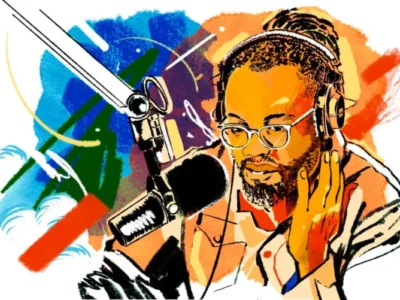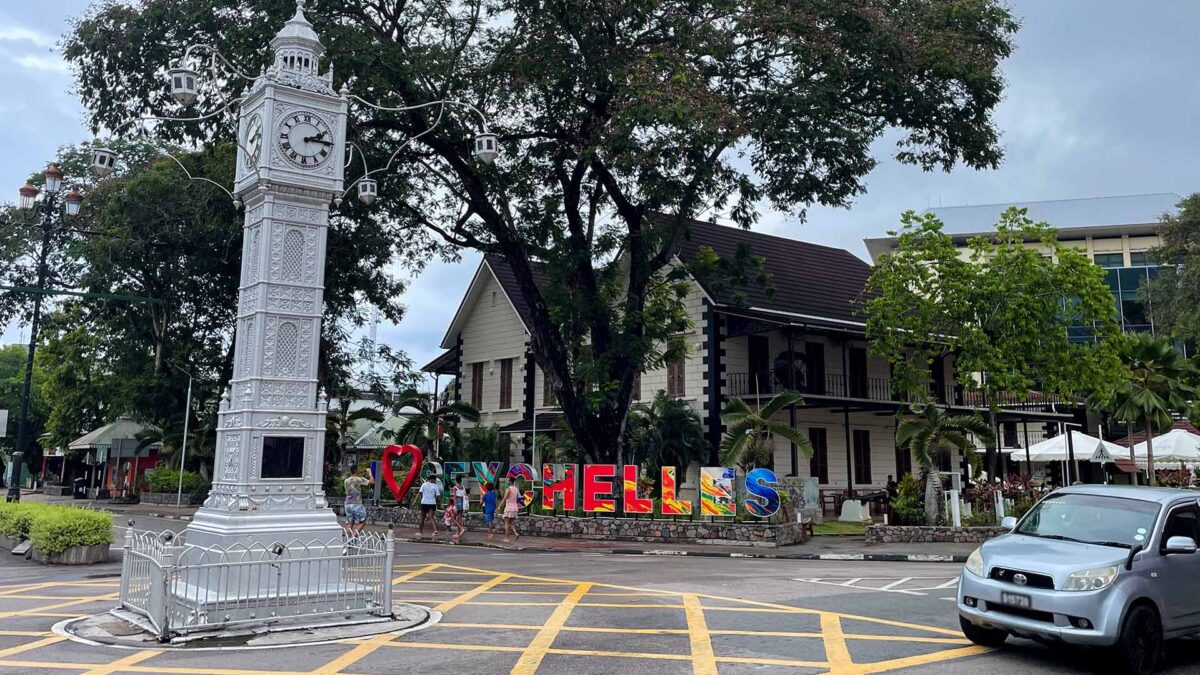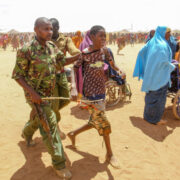
Like their counterparts all over the world, African investigative journalists and organizations are turning to cross-border partners to share resources, tackle massive troves of data, and increase the impact of their reporting. They do so in some of the world’s most challenging and dangerous environments for investigative journalists.
Over the last 10 years, complex cross-border investigations — such as Swazi Secrets, the West Africa Leaks, and regional environmental reporting projects such as InfoCongo and InfoNile, have drawn together journalists and researchers from nearly a dozen African countries, with and without media partners from other continents.
There are also a growing number of organizations in Africa dedicated to facilitating investigative collaborations — whether across fields by connecting scientists with journalists; across borders by serving as a regional network; through training; helping investigative journalists reduce the risks of publishing in dangerous countries; and by providing funds or helping reporters fundraise.
GIJN spoke to some of the organizations and journalists supporting cross-border investigative projects in their regions — including southern Africa, East Africa’s Great Lakes, the Nile River Basin, and more — about their projects, experiences, challenges, and the tools that help them collaborate.
CENOZO: West Africa Leaks and Beyond
The West Africa Leaks investigation published in 2018 — which exposed how powerful corporations and individuals in West Africa hide billions offshore — was driven by the then-largest collaboration of journalists in the region to date. Based on an analysis of all the West Africa-specific material in the 27.5 million documents from ICIJ’s big data leaks — including the Offshore Leaks, Panama Papers, and Paradise Papers — it was the first time the ICIJ focused on a specific region and coordinated a collaboration involving dozens of journalists across 11 countries.
One of ICIJ’s partners in West Africa was the Burkina Faso-based Norbert Zongo Cell for Investigative Journalism in West Africa, or CENOZO, a regional association of investigative journalists. Set up in 2015, CENOZO, a GIJN member, serves as a network hub for journalists in West African countries, helps them publish stories when it’s too dangerous in their own countries, provides funding, and trains journalists in investigative techniques.
“The biggest challenge facing journalists in our region is the lack of resources and skills to carry out in-depth investigations on issues of public interest,” says CENOZO Program Manager Ignace Sossou. He adds that their biggest concerns currently are the deterioration of security in West Africa, declining access to sources, and loss of journalist motivation. The security and political climate in West Africa is challenging, particularly in the Sahel region, where armed terrorists are active in several countries.
CENOZO journalists have also worked on the ICIJ-coordinated projects Shadow Diplomats, Pandora Papers, and the FinCEN Files investigations. In 2023, CENOZO formed a partnership with the visual and data-focused nonprofit Center for Collaborative Investigative Journalism (CCIJ) to strengthen investigative journalism in West Africa.
IJ Hub: Supporting Reporting in Southern Africa
The Swazi Secrets investigation — based on what ICIJ described as the largest leak of its kind from a financial intelligence unit in an African country — exposed the transactions and actors behind an illicit regional economy and implicated some of southern Africa’s most famous names in politics and business.
More than 890,000 internal documents from the Eswatini Financial Intelligence Unit (EFIU), were leaked and obtained by the nonprofit Distributed Denial of Secrets and shared with the ICIJ and seven media partners. Thirty-eight journalists from 11 countries — including South Africa, Nigeria, and Zambia — worked on the story.
The South Africa-based media partner for Swazi Secrets was the South African GIJN member, the amaBhungane Centre for Investigative Journalism, an independent nonprofit that started life as an investigative unit at the Mail & Guardian newspaper.
In 2019, amaBhungane launched IJ Hub to support investigative newsrooms in the region — through capacity building, editorial support, and pooling fundraising and risk. Set up initially as an incubator at amaBhungane, IJ Hub was spun off from the newsroom in 2021 and currently has seven member centers in six countries — South Africa, Lesotho, Eswatini, Zambia, Malawi, and Namibia.
This year, three members of IJ Hub’s stable — amaBhungane, Zambia’s Makanday, and Eswatini’s Inhlase — collaborated with the ICIJ on the Swazi Secrets. They exposed Eswatini’s possible role as a conduit in southern Africa’s gold smuggling economy — thanks to weak anti-money laundering controls — and the South African politicians and power brokers involved. The investigation also uncovered two phantom gold refineries that channeled millions of dollars to Dubai through Eswatini.
Troye Lund, IJ Hub’s executive director, explains that the Swazi Secrets investigation enabled the journalists to “tap into each other’s resources for shared success.”
She notes that the biggest challenge they faced was accessing information, which in most [of these] countries is “almost impossible.” For example, in Eswatini — Africa’s last remaining absolute monarchy — it is both very difficult and dangerous to find information. “You have to find a way around that, and you have to find journalists who are very experienced and know how to manage that process,” she explains. Following Swazi Secrets, lawmakers in Eswatini cracked down further on press freedoms in a bid to prevent future leaks.
Lund also edited a collaborative story about a US-based Christian NGO, uncovering how the charity’s founders pocketed donations intended for Malawian children to fund their lavish lifestyle. The story was produced by Malawi’s Platform for Investigative Journalism (PIJ), with editorial support from IJ Hub and OpenUP/Africa Data Hub.
Journalists involved in this project collected financial documents and tax returns from Malawi and the US.
After the investigation was published, “Malawi’s NGO oversight authority launched investigations into the charity, leading to US decertified status and a criminal investigation. Several donors [also] disinvested,” Lund says.
Lund explains that she finds that an effective reporting approach involves connecting journalists from different investigative units working on a story with a specialized investigative editor.
“The specialized editor drives the main theme of the investigation, and there are weekly meetings or even more frequently with the editor so the investigation can be monitored and guided,” Lund says. “The editor is experienced and can help discuss what to do next and how to manage information.”
InfoNile: ‘Geojournalism’ in the Nile River Basin
Cross-border investigative reporting can enhance knowledge and skills as journalists share ideas, resources, and tools — but it can also connect journalists with topic experts.
InfoNile, which reports on issues in the Nile Basin — a region of 11 African countries including Egypt, Sudan, Eritrea, and Ethiopia — was founded in 2017, and includes a “cross-border group of geojournalists” that uncover critical stories on water issues related to the world’s longest river and who connect researchers, scientists, journalists, and the public.
Co-founder Annika McGinnis notes that cross-border journalism has helped uncover transnational trade routes. Their investigation Sucked Dry: Land Grabs and Water Access in the Nile River Basin revealed how foreign investors acquire massive areas of land — and displace communities — in Ethiopia to grow flowers for big export profits. The project brought together a team of more than 10 editors, reporters, data journalists, designers, and translators from seven countries, and won third prize in the category of Outstanding Investigative Reporting in the 2020 Fetisov Journalism Awards.
“[Cross border collaboration] is the way to go,” McGinnis emphasizes. “It’s the only way we can expose the reality of these cross-border issues on a broader scale, and track the transnational trade.”
McGinnis explained that InfoNile was sparked by a research project called Open Water Diplomacy Lab, which examined how media outlets in the Nile Basin reported on regional water issues and found that, in a majority of the countries, coverage took “a very nationalistic lens and not a cross-border perspective.” InfoNile exists to fill that gap.
Although InfoNile initially focused on water issues, it soon realized that this approach could also cover a wide range of topics in the region. For example, InfoNile has partnered with South Africa-based environmental outlet, Oxpeckers Investigative Journalism Network to cover wildlife trafficking and has produced lots of investigative stories.
“Wildlife and products that come from them can be sourced from one country to another country through illegal means and exported to abroad or another region. This is transnational trade that needs to be covered through a transnational lens,” McGinnis says.
In 2022, InfoNile launched NileWell, a platform that connects environmental journalists and researchers in the Nile Basin, with 233 researchers and over 500 journalists registered. InfoNile also started a monthly program called Science Wednesday, where environmental or water scientists share their studies with a network of journalists. This initiative helps journalists get their story ideas and an opportunity for scientists to explain or clarify some of the scientific terms.
“We believe that solving these environmental issues requires science-based expertise, and we need to be able to take this expertise and transform it into a format that people can understand and engage with,” McGinnis said.
InfoNile is based in Uganda, but to address language barriers that may arise, they have a team of country coordinators in each of the countries in the Nile Basin who are skilled in environmental and investigative journalism, can speak the local language, and can connect with the journalists in their country and facilitate InfoNile’s programs, like training, in the predominant language in the area, and invite local experts.
AI and translation tools such as Google Translate help InfoNile translate the draft of a story from a certain language to another. “It’s not perfect,” McGinnis admits. “But it helps us to be able to find more common ground. Each of them has their challenges, like maybe they cannot translate accents so well, or they don’t always get everything correct. This is still an area where we are constantly thinking of how to improve.”
Safety, Tools, Training
When investigative journalists face threats in their own country, cross-border investigations can increase journalists’ safety and mitigate threats — because the investigation can be published in multiple media outlets in different countries.
One of CENOZO’s core purposes is to provide a platform for journalists who can’t use their own name for security reasons, or where their local newspapers won’t cover sensitive topics.
“If you come together, you will spread the risk,” says Gilbert Bukeyeneza, the founder of Ukweli Coalition. “It’s easier to target one journalist than more than one journalist or outlet,” he adds. The Ukweli Coalition — named after a Swahili word that means fact or truth — was founded in May 2023 to support cross-border investigative journalism in East Africa, particularly the African Great Lakes region. “The Great Lakes [region] is the Francophone part of East Africa, and it’s the region far behind in terms of freedom of the press and media projects to support journalists,” explains Bukeyeneza, who has been a journalist for 12 years. “Journalists in the region are in a financial crisis. They are incapacitated.”
In July 2024 the Ukweli Coalition, in partnership with Africa Uncensored, organized a workshop for 10 journalists from Burundi and the Democratic Republic of the Congo — the coalition’s first activity since it launched.
Digital tools play a critical role in the success of cross-border collaborative investigative journalism projects, especially in helping journalists reach a wider audience.
Lund said the IJ Hub member center and Africa’s first investigative environmental journalism unit, Oxpeckers Investigative Environmental Journalism, developed a series of cross-border investigation tools. One of the key tools is #WildEye, which can “track seizures, arrests, court cases and convictions relating to wildlife and other environmental crimes across the world.” Another is #PowerTracker, used to “track renewable power projects and the decommissioning of coal plants in Sub-Saharan Africa.”
InfoNile’s McGinnis says that she’s currently exploring Claude for Sheets, an AI tool that helps to write formulas in Google Sheets. “It’s quite useful when you have data that is not so organized, or you have long pieces of text written in your data, and you are trying to determine [what it is about] and trying to create some kind of organization from it,” she says.
Often, collaborative reporting takes longer than usual reporting because journalists from different countries need to coordinate different timelines, and because they are mostly longer pieces, the writing and editing take time.
McGinnis said that InfoNile investigations could last for three months, six months, or even one year depending on the nature of the project. “This is the nature of collaborative reporting. So we never settle with the first draft. We are always asking our journalists to collect something deeper, to go further,” she says.
Lund agrees. “Cross-border collaborations take a long while so it requires patience. Sometimes, they are frustratingly complicated. When you have a publication date in mind, you can sometimes postpone it for weeks or months,” she says.
McGinnis and Lund caution that the nature of cross-border investigative journalism calls for frequent training. While InfoNile has trained more than 300 journalists and has provided grants to about 200 journalists, IJ Hub in the last 12 months has organized 34 workshops, trained 667 participants, and organized about 12 fellowships.
“It’s a very hands-on interactive relationship with them and our aim with the training is to have bespoke and on-the-job training that addresses individual or team needs; and to develop their skills,” Lund said. “There is huge potential for cross-border collaborations and it’s something we would like to do a lot more on as far as there is funding.”















